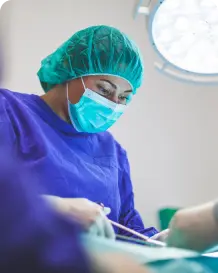Cystectomy Treatments
Cystectomy is a surgical procedure to remove all or part of the urinary bladder. Know all about the treatment . Cystectomy is a surgical procedure to remove all or part of the urinary bladder. Know all about the treatment .
Happy patients
 50+
50+
Expert surgeons
Personal Assistance







